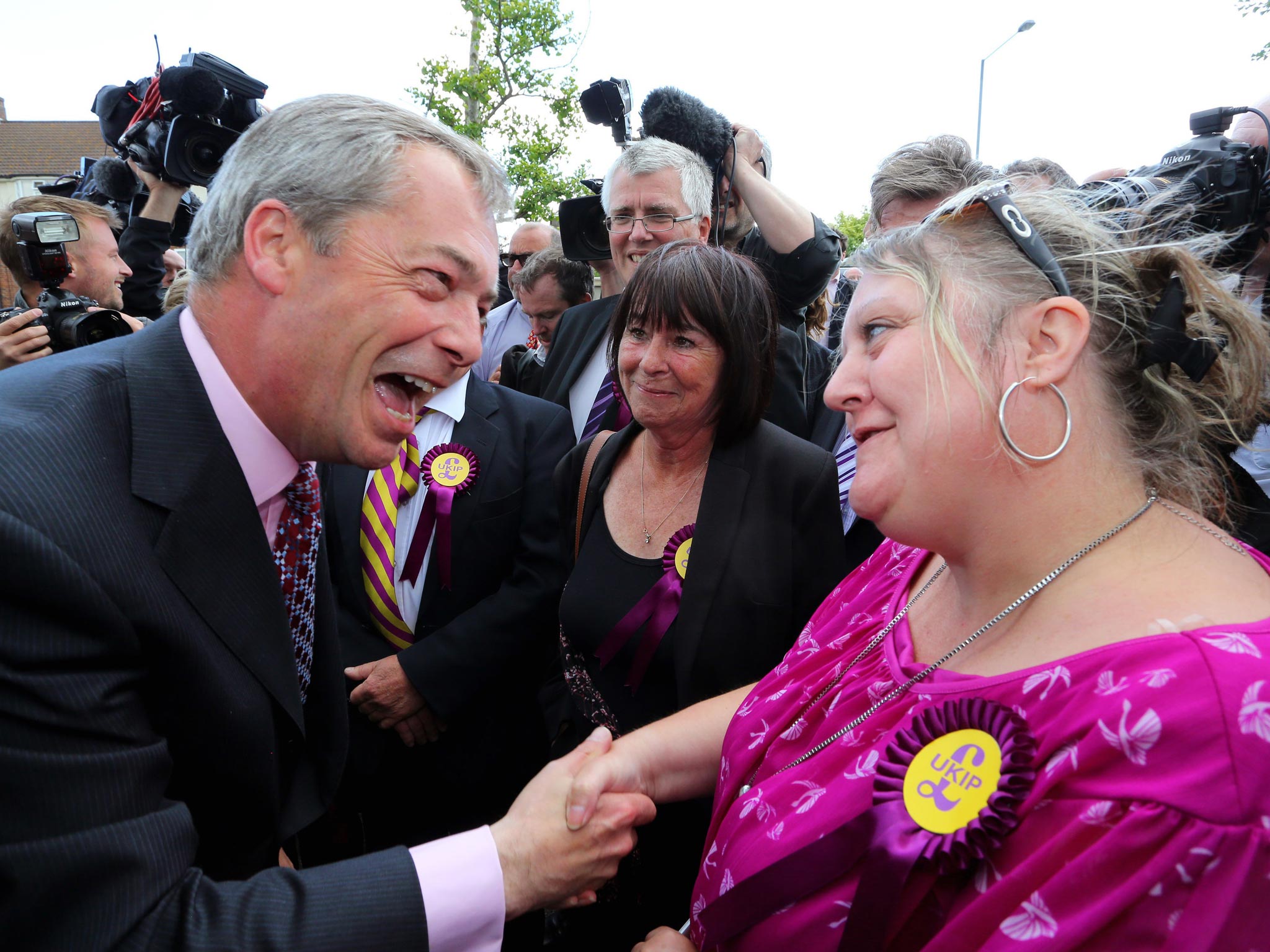Local election results 2014: Gloomy results all round - unless you're a Ukip voter

Your support helps us to tell the story
From reproductive rights to climate change to Big Tech, The Independent is on the ground when the story is developing. Whether it's investigating the financials of Elon Musk's pro-Trump PAC or producing our latest documentary, 'The A Word', which shines a light on the American women fighting for reproductive rights, we know how important it is to parse out the facts from the messaging.
At such a critical moment in US history, we need reporters on the ground. Your donation allows us to keep sending journalists to speak to both sides of the story.
The Independent is trusted by Americans across the entire political spectrum. And unlike many other quality news outlets, we choose not to lock Americans out of our reporting and analysis with paywalls. We believe quality journalism should be available to everyone, paid for by those who can afford it.
Your support makes all the difference.Only London, with its well educated population, resisted the Ukip tide. In the capital, Nigel Farage’s party managed only 11 per cent of the vote on average in the wards in which it stood.
Partly as a result, Ukip’s overall performance was not quite as good as in last year’s county council elections; the BBC projected a 17 per cent share of the national vote, down six points on last year.
All of Westminster’s principal parties looked forward to today’s local election results with a mixture of fear and trepidation. None could be sure of securing a respectable result in the wake of Ukip’s rise, the recent narrowing of Labour’s opinion poll lead and the Liberal Democrats’ rock bottom ratings.
Their fears proved to be well founded. Ukip again performed above expectations. On average it won 22 per cent of the vote in the wards in which it stood. “Essex man” warmed to Mr Farage, as Ukip made no less than 31 gains in Basildon, Castle Point, Southend, and Thurrock alone. Its overall tally of around 150 net gains represents a further significant extension of its local government base.
Labour wanted to show it was clearly on course to win next year’s general election. Instead, yesterday’s results again raise questions about whether there really is much enthusiasm to see Labour in power again. It vote was up on average by only four points on 2010, when the party had collapsed to its second worst defeat in its history. The BBC reckoned Labour’s performance was worth only a two-point lead over the Conservatives, not necessarily enough to win a parliamentary majority.
As anticipated, Labour did manage to capture control of a number of London councils. However, this simply reflected the fact that more seats were up for grabs in the capital; the swing from Conservative to Labour was no higher than elsewhere. Much the same was true of the swing in Conservative/Labour marginal seats.
Conservative MPs were hoping the local elections would show economic recovery was beginning to be reflected in the ballot box. But the party’s vote was not just six points down on average on 2010, but was also two points down on 2012, just after the “omnishambles Budget” that cost the party dear. Winning back voters from Ukip is proving a much more difficult task than Tory backbenchers had ever imagined.
Still, perhaps no more difficult a task than the Liberal Democrats face to avoid disaster next year. At 13 per cent, its performance was projected by the BBC to be its worst local election result yet. The party tried to comfort itself with the thought that its vote was holding up better in some places where it has an MP. Yet in practice the Lib Dem vote fell on average in such places by 13 points – exactly the same as everywhere else.
Expect Westminster to be a rather gloomy place when MPs return for the Queen’s Speech on Wednesday week.
John Curtice is Professor of Politics at Strathclyde University
Join our commenting forum
Join thought-provoking conversations, follow other Independent readers and see their replies
Comments